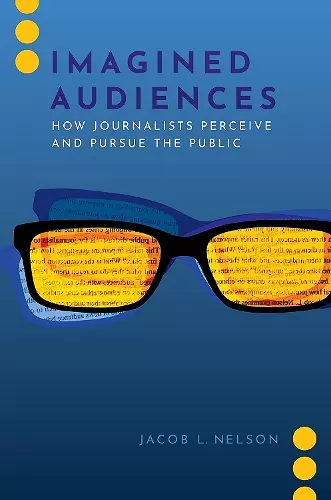Imagined Audiences
How Journalists Perceive and Pursue the Public
Format:Paperback
Publisher:Oxford University Press Inc
Published:21st Apr '21
Currently unavailable, and unfortunately no date known when it will be back
This paperback is available in another edition too:
- Hardback£88.00(9780197542590)

Many believe the solution to ongoing crises in the news industry--including profound financial instability and public distrust--is for journalists to improve their relationship with their audiences. This raises important questions: How do journalists conceptualize their audiences in the first place? What is the connection between what journalists think about their audiences and what they do to reach them? Perhaps most importantly, how aligned are these "imagined" audiences with the real ones? Imagined Audiences draws on ethnographic case studies of three news organizations to reveal how journalists' assumptions about their audiences shape their approaches to their audiences. Jacob L. Nelson examines the role that audiences have traditionally played in journalism, how that role has changed, and what those changes mean for both the profession and the public. He concludes by drawing on audience studies research to compare journalism's "imagined" audiences with actual observations of news audience behavior. The result is a comprehensive study of both news production and reception at a moment when the relationship between the two has grown more important than ever before.
The book is important both because it shows the many different ways of dealing with the audiences and because it contains a very important side story...this book is to be recommended to both journalists and researchers who are interested in the fundamental questions of the relations between journalism and its audiences. * J. Møller Hartley, Roskilde University, De Gruyter Mouton *
This is a well-researched, thoughtful addition to the literature about journalism's decline. Highly recommended. * CHOICE *
Sharply written and closely observed, Imagined Audiences argues that journalists' beliefs about the audiences they attempt to serve often fall short. Nelson shows that in an era of 24/7 online audience data, what journalists actually understand about their audiences is surprisingly limited and uncertain. Grounded in ethnographic study of three news organizations, Imagined Audiences provides an important and timely framework for thinking about the industry-wide embrace of—and ambivalence about—audience engagement, particularly with respect to audiences traditionally overlooked by mainstream news. Ultimately, Nelson argues, while this focus on connecting with audiences may or may not succeed in improving journalism's bottom line, it may nevertheless improve journalism. * Regina G. Lawrence, University of Oregon *
There are lots of assumptions about how journalists are engaging their audiences in the digital age—but many of them haven't been put to the test like they are in this book. Jacob L. Nelson presents a must-read account of how journalists may variously see their audiences as a source of frustration or a source of inspiration, and why those imaginations and the complications and contradictions surrounding them are at the heart of the most consequential debate about the future of news happening today. * Seth C. Lewis, University of Oregon *
As journalism faces a profound structural crisis, Nelson's timely and nuanced ethnographic analysis provides an invaluable roadmap for understanding the ever-shifting relationships between different kinds of audiences and different types of journalists. The book is both deeply researched and a joy to read. It's perfect for students, scholars, journalists, and citizens concerned about the future of their news media and their democracy. * Victor Pickard, University of Pennsylvania *
In this illuminating work, Jacob L. Nelson complicates the notion that 'engagement' with audiences alone will save the press. Imagined Audiences asks newsrooms to get real about trust-building obstacles, accept that news audiences are ultimately unknowable, and combine approaches—including engagement—toward relevancy. Read it all the way to the end: You will not be disappointed and might even come away with an idea for how to fix news media. * Sue Robinson, University of Wisconsin-Madison, and author of Networked News, Racial Divides *
ISBN: 9780197542606
Dimensions: 155mm x 234mm x 18mm
Weight: 340g
232 pages